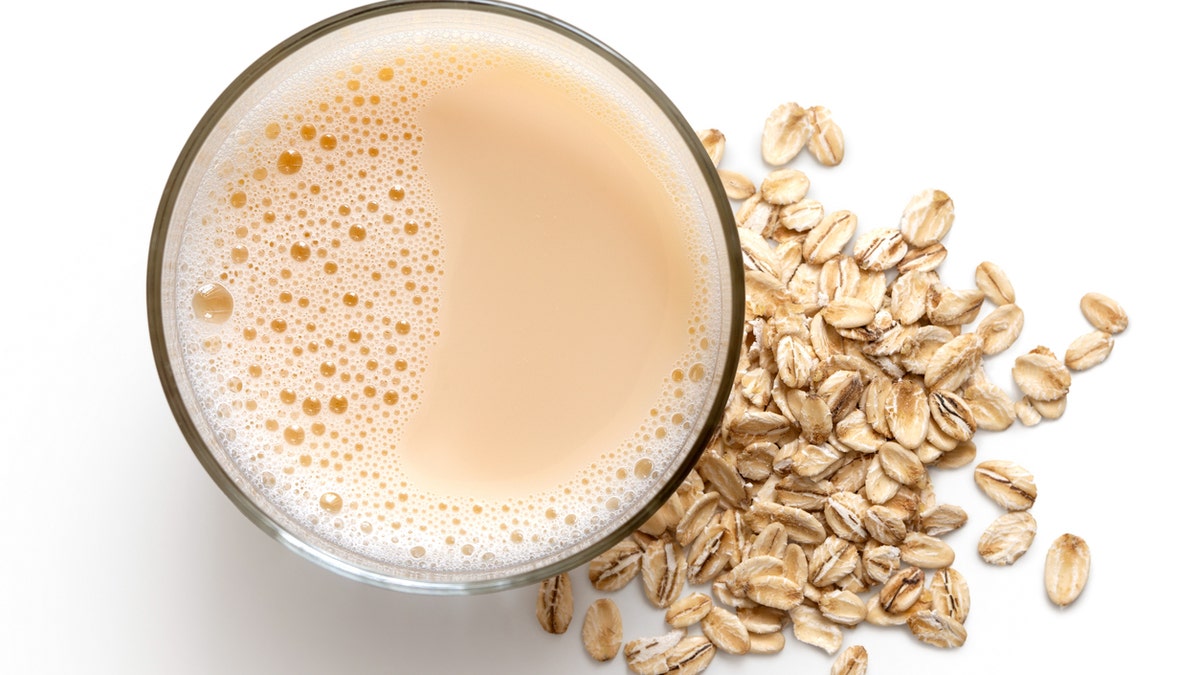
But how is this nondairy milk made? And is it good for you? (iStock)
With a spike in people adopting more plant-based food items into their cupboards and refrigerators, alternative milks are becoming more mainstream. One of the newer – and increasingly popular – vegan milks is oat milk.
But how is this nondairy milk made? And is it good for you?
OAT MILK SHORTAGE PROMPTS SELLERS TO CHARGE OVER $200 ON AMAZON
Oat milk has been especially popular as of late, with proponents touting its creamy texture – said to be typically smoother and more milk-like than other nut or alternative milks – and without a strong taste of its own, making it easy to blend into other foods or as a creamer for coffee.
At its most basic, oat milk is made of oats that have been soaked in water before being blended and strained through a fine mesh sieve or cheesecloth. The strained liquid becomes the mild-flavored milk (don’t worry, it doesn't taste like oatmeal), left behind is the oat “pulp,” which can be used to enrich baking dishes or tossed. Some commercially made oat milks -- the types you can purchase at the store -- may contain sugar or other flavorings and additives.
CLICK HERE TO SIGN UP FOR OUR LIFESTYLE NEWSLETTER
Unlike other nut milks, oat milk retains more of its nutrients, like fiber and protein, which are mostly found in the leftover pulp.
"Because oats absorb water more easily than nuts, when blended well enough, more of the food itself winds up passing through the cheesecloth, giving a creamier texture than nut milk without added ingredients,” registered dietitian Kelly R. Jones M.S., L.D.N. told Shape.
Since the oats retain more of their nutritional content during production, the vegan milk stacks up a bit better as far as protein value when compared to other nondairy options.
FOLLOW US ON FACEBOOK FOR MORE FOX LIFESTYLE NEWS
A cup of oat milk has 4 grams of protein, compared to almond milk, which has about 1 gram. Soy milk, however, boasts the most at around 7 grams. However, all are less than cow’s milk, which has around 8 grams per 8-ounce cup.
Oat milk also boasts 2 grams of fiber — compared to only 1 gram for both almond and soy and 0 grams from cow’s milk.
As for other nutrients your body needs, oats contain a variety of vitamins and minerals such as thiamin, folate, magnesium, zinc, copper and phosphorus among others.
CLICK HERE TO GET THE FOX NEWS APP
So, while the faux-milk might not be as protein-rich as its dairy counterpart, it's a nutritious and creamy alternative for any place you use milk, whether you’re adopting a more plant-friendly lifestyle or not.
